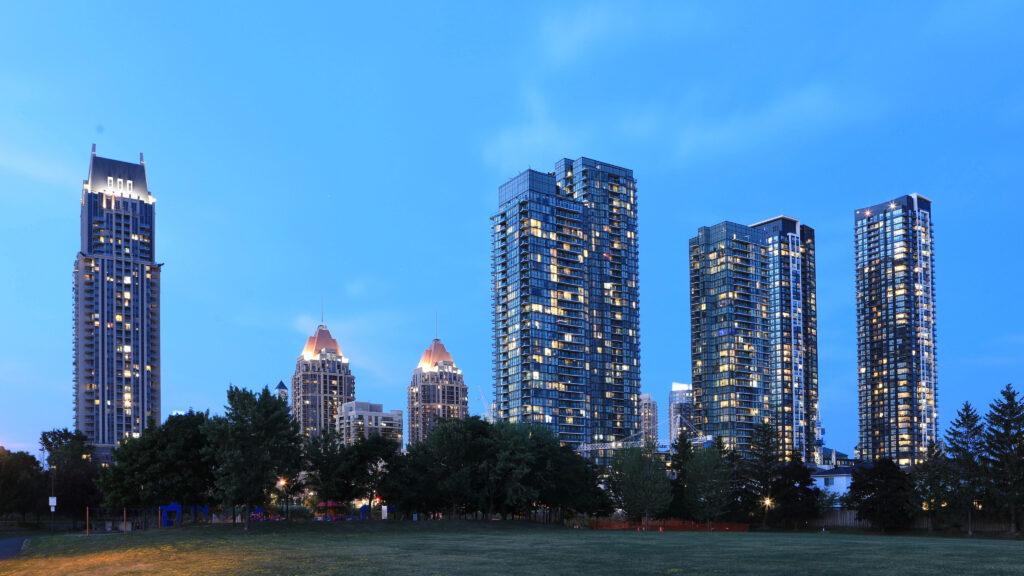
On March 24, 2025, Mississauga announced the recipients of its $44 million Affordable Rental Housing incentive program, funded in part by the federal Housing Accelerator Fund. The funding is aimed at supporting the construction of over 1,400 new rental units, with 25% designated as more affordable or below-market, marking the start of a new wave of purpose-built rental developments citywide.
Only 2,200 rental units have been constructed since 2005, so housing supply is critical to addressing ongoing market challenges.
Affordable Rental Housing Incentive Program
The incentive program looks to accelerate construction on projects that are already shovel-ready, aiming to initiate construction within the next two years. Developers, both from the private and non-profit sectors, could benefit from financial support, with each eligible affordable unit attracting a capital grant of $130,000, while units classified as below-market receive $60,000 each. In addition to these grants, successful applicants benefit from waivers or grants that cover certain municipal fees and charges. Funding will be disbursed approximately one month after the issuance of building permits, provided that developers meet all eligibility requirements. Furthermore, the funded units must adhere to minimum size standards and remain affordable for at least 25 years, ensuring a long-term impact on the community.
Mississauga’s Broader Housing Plan
This financial initiative is a part of the city’s overall housing strategy, known as Growing Mississauga: An Action Plan for New Housing. The plan outlines a four-year framework that aims to not only increase the number of new homes but also to make them more affordable and accessible. Central to the strategy are several key goals, including increasing housing supply, improving affordability, streamlining the approval process, securing funding for new infrastructure, and engaging the community in the planning process.
The plan seeks to streamline processes to support rapid expansion while ensuring that new developments integrate effectively with existing community infrastructure such as transit, parks, sewers, and public spaces.
Ontario’s Housing Goals and Regional Context
Mississauga’s goals also align with the broader ones set by the province of Ontario. The provincial target requires cities to deliver 1.5 million new homes over the next decade, while Mississauga itself is tasked with adding 120,000 new units over a ten-year period. This is a notable increase, equivalent to adding the population of a mid-sized city like Guelph or Waterloo within a decade.
As the city transitions from a landscape dominated by market condominiums, many of which are later converted to rental units, toward purpose-built rental housing, the initiative is expected to provide more stable, long-term rental options. In recent years, about 60% of the apartment condominium units built between 2016 and 2021 in the Toronto Census Metropolitan Area were occupied by renters.
Project Details and Developments
Out of 12 applications submitted during an open call for proposals, eight projects located across six of Mississauga’s 11 wards have been approved. Collectively, these developments will add 1,450 purpose-built rental units to the city’s inventory. The projects will include a variety of unit types, with 261 units designated as affordable, meaning rents will be at or below 100% of the average market rent, capped at $1,625 per month for a one-bedroom unit, and 123 units classified as below-market, with rents set below 125% of the average market rate, capped at $2,031 per month for a one-bedroom unit. A notable feature of these developments is the inclusion of 200 family-sized units, which are designed to meet the needs of households requiring two or more bedrooms.
Oversight and Next Steps
As these projects move toward building permit issuance, city staff will work closely with developers to ensure all eligibility requirements remain in place. This oversight is vital for maintaining both the long-term affordability and quality of the new units. Funding is reserved for projects that are truly ready to start construction, as part of ensuring quick and effective housing delivery.






